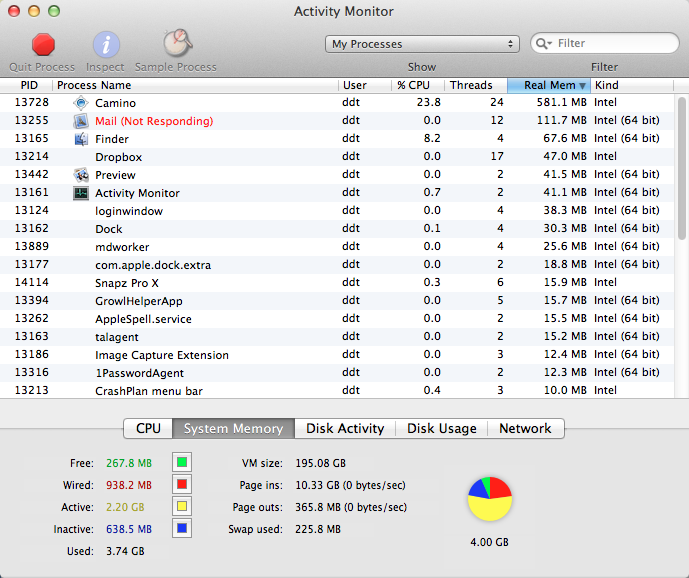If you want to know the true measure of someone, it's all about how they react when things aren't going their way.
By now, the one thing we really know about Romney as a person (aside from the fact he's fabulously wealthy, to the extent that he and his family are almost on another, gated, branch of the evolutionary tree) is his ability to say jaw-droppingly awkward things when forced to talk to, you know, people. The examples are legion: "I like grits", "the trees are the right height", "who let the dogs out?", "garbage bags", and many, many more. What's in common in these gaffes? Why can we almost see the "I need to note something about an individual or locality, express that I see it, and say that I, too, am that" app load screens come up on Romney's main display?
Of course I'm guessing here, but I think it can be traced back to Dale Carnegie's "Six Ways to Make People Like You". My sense is that this framework is still floating around management training courses that were the Petri dishes Romney swam out of at some point, and since a small use worked once for him, he's upping the dose in order to Make It Work on a large scale. The problem he doesn't see is that it doesn't scale, and it doesn't work when you can't pull it off.
Six ways to make people like you
1. Become genuinely interested in other people.
2. Smile.
3. Remember that a person's name is to that person the sweetest and most important sound in any language.
4. Be a good listener. Encourage others to talk about themselves.
5. Talk in terms of the other person's interests.
6. Make the other person feel important - and do it sincerely.
We can give him a partial pass on #4, as most of the interactions where the Romney suite of apps fail are not interactive, but variants on PowerPoint -- that is, he's presenting, not collecting data. Though his "I give the answers I want" moment near the end of the 11,432nd CNN debate is a fail. And really, not something you want the leader of a nation to be in the habit of saying (accountability is A Good Thing).
As for #1, well, empathy to strangers wasn't in the original design specs for Romney. And, again to be fair, it's a hard thing to ask given the nature of a campaign -- though Bill Clinton was amazing at it (I once heard him at a mall greet of thousands of people, and when someone said he was so-and-so's old roommate, Clinton knew who he was talking about, and asked him personal questions about their mutual friend).
#2 is an interesting case. Of course it's good to smile when you meet people. But again, Romney has taken the "it's good, so more is better" idea to the point it stops working. Or maybe he's afraid that dropping the smile will dock his relatability and likability rating even below that of, say, an STI. Take a look at how Romney holds on to that rictus in tough situations -- being pressed for answers, being challenged in interviews or debates. Is he trying to signal "I'm above this attack", or "this doesn't bother me"? I suspect someone once told him that Carnegie's #2 was key -- because the business world is small, and even if you screw someone over in a deal, you want them to think there's a chance it wasn't personal, just a game, and that there's so little bad blood between you that they'd be willing to get into a position for you to screw them over again.
(You could see something similar, though at a smaller scale, in Wesley Clark's 2004 bid. Look how the military man responds to a military question and compare to his face at the start of a Chuck Todd interview.)
The meat of it is a combination of #1, #3, #5, #6, and the special sauce of trying to show that one can relate. The problems arise in that a) Romney is not genuinely interested in these other people and b) he tries to combine #5 and #6 by saying "I do that, too" -- but not only does he not, he doesn't realize that replacing "that" with his closest match is not a viable substitute.
Just type "Romney NASCAR" into your favorite search engine and you'll see only ridicule about his comment -- at a NASCAR event -- that though he's not a big fan, he has "some great friends that are NASCAR team owners". This is a great example of the big fail of blindly applying Carnegie's rules. If he were honest, he could say something like, "I've never been to one of these -- it seems cool! Tell me more about it?" People actually love sharing their interests and passions -- if you're American, go to a pub during the World Cup, buy a pint, and ask someone to explain what they love about soccer (excuse me, football). But Romney was programmed to show that he already shares your interests, and that Your Concerns Are My Concerns, Too, So We're The Same. And that this will lock in someone's vote.
What's worse about this, aside from seeing the last dregs of someone's soul evaporate before your eyes, is it signals not just a lack of true care for individuals (to be fair, who can really care about every random stranger one meets when one is faced with hundreds, if not thousands, of them on a daily basis for months and years on end?), but the worldview that people are fungible products, means to an end, and not an end in themselves. They are assets to be collected and traded in for what you really want, stars or rings that'll add up to a power-up in a video game. It's an asset manager's view of citizens, and a blind application of a limited algorithm.
And what's even worst? What this shows is a blind application of learned rules, not the ability to think critically and rigorously. It's the same as a student turning in lecture notes about a Shakespeare as an original paper. This actually happened to me, as did the student asking, "Why, isn't this right? It's what the professor said -- are you saying he's wrong?" At some point this tactic worked for Romney, so now he's applying it. The goal is bigger? More cowbell.
This does not seem like a winning strategy for the leader of a complex, contradictory, nation.

























